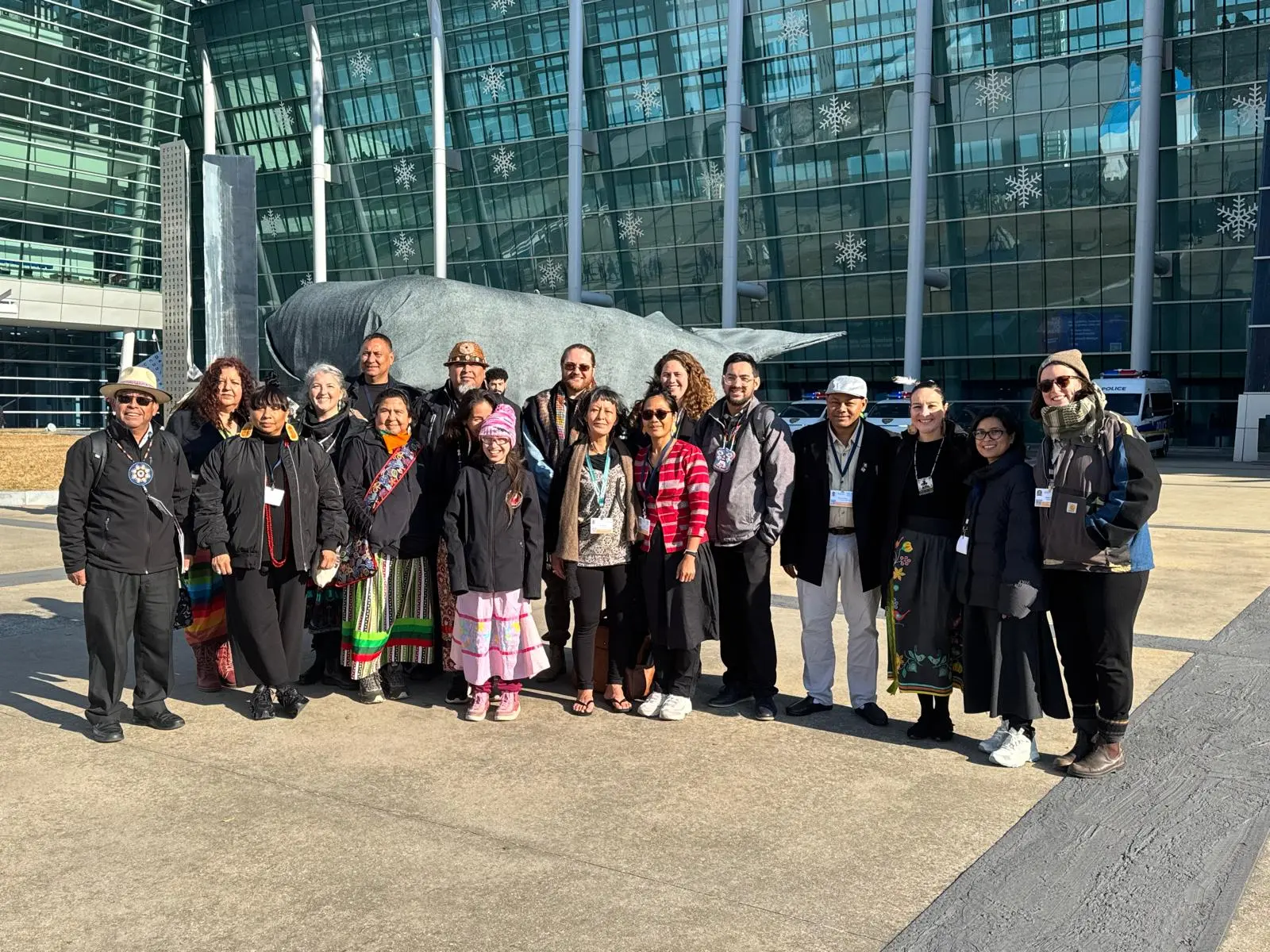
The fifth Intergovernmental Negotiating Committee (INC-5) for the Global Plastics Treaty concluded in Busan, South Korea, marking a pivotal yet deeply disappointing moment in the global fight against plastic pollution. From an Indigenous, frontline, and fenceline environmental justice perspective, these negotiations failed the communities most affected by plastic pollution, perpetuating exclusion, lack of accountability, and disregard for human and Indigenous rights.
Key Failures of INC-5
1. Exclusion of Indigenous Peoples:
Despite being among the most impacted by plastic pollution—from extraction to disposal—Indigenous Peoples were systematically excluded from critical decision-making. While Indigenous Knowledge was superficially referenced, the treaty draft ignored the United Nations Declaration on the Rights of Indigenous Peoples (UNDRIP) and omitted mechanisms for Free, Prior, and Informed Consent (FPIC), reducing Indigenous contributions to tokenism.
2. Lack of Accountability and Transparency:
The negotiations were criticized for favoring petrochemical lobbyists and petro-states over the voices of rights holders. Key provisions, such as legally binding global targets for plastic reduction and holding polluters accountable under the “Polluter Pays Principle,” were weakened and excluded.
Closed-door negotiations further sidelined community advocates and environmental justice delegations.
3. Failure to Address Systemic Harm:
The draft treaty failed to address the full life cycle of plastics, including upstream impacts of extraction and the hazardous chemicals in plastic production. The text also allowed for dangerous false solutions, such as chemical recycling, bioplastics, and plastic credits, which perpetuate waste colonialism and systemic inequities.
4. Neglect of Human Rights and Environmental Justice:
By ignoring the intersecting crises of human health, environmental degradation, and biodiversity loss, the treaty exacerbates global inequalities. Its reliance on voluntary measures undermines the principles of environmental justice and fails to protect vulnerable communities suffering disproportionate harm.
A Note of Optimism
While INC-5 was fraught with failures, one notable outcome offers a glimmer of hope: the negotiations did not conclude with the adoption of a weak treaty. This delay provides an opportunity for global leaders to return to the table with greater ambition and commitment. There is still time to ensure that the treaty addresses the entire life cycle of plastics, from extraction to disposal, and incorporates enforceable provisions on all chemicals of concern. This pause in finalizing the treaty is a critical moment to push for a framework that upholds human rights, respects Indigenous sovereignty, and delivers meaningful solutions.
Demands for Transformative Action
The International Indigenous Peoples Forum on Plastics (IIPFP) and other environmental justice organizations have called for significant revisions to the treaty to ensure it upholds Indigenous and human rights, recognizes the sovereignty and leadership of frontline communities, and delivers on its promise of justice:
• Recognition of Indigenous Rights: The treaty must fully integrate UNDRIP and guarantee Indigenous participation as rights holders in governance structures.
• Legally Binding Targets: Robust commitments to phase out plastics, halt fossil fuel extraction, and eliminate toxic chemicals from plastic production are essential for meaningful progress.
• Rejection of False Solutions: Solutions must prioritize non-toxic reuse and traditional zero-waste systems rather than perpetuate harmful practices under the guise of circularity.
• Financial and Technical Support: A just financial mechanism is needed to provide equitable, grant-based funding directly to impacted communities, ensuring their leadership in implementing solutions.
Conclusion
INC-5 has failed to deliver the transformative change necessary to address the global plastic crisis. By excluding Indigenous Peoples and frontline communities, the treaty undermines its legitimacy and effectiveness. However, the absence of a finalized treaty offers a critical window for meaningful revisions. Global leaders must urgently prioritize inclusion, accountability, and justice to create a treaty that respects human rights, safeguards the environment, and honors the Knowledge and sovereignty of those most affected by plastic pollution. A weak treaty is not just a missed opportunity—it is a betrayal of the communities and ecosystems fighting for survival. The world is watching, and the responsibility to act boldly and inclusively is more urgent than ever.
12/10/2024 – This report has been written by the Society of Native Nations (SNN)
Published News articles with quotes from Society of Native Nations (SNN), Break Free From Plastics Environmental Delegation (BFFP-EJD), and the Indigenous Peoples Forum on Plastics (IIPFP):